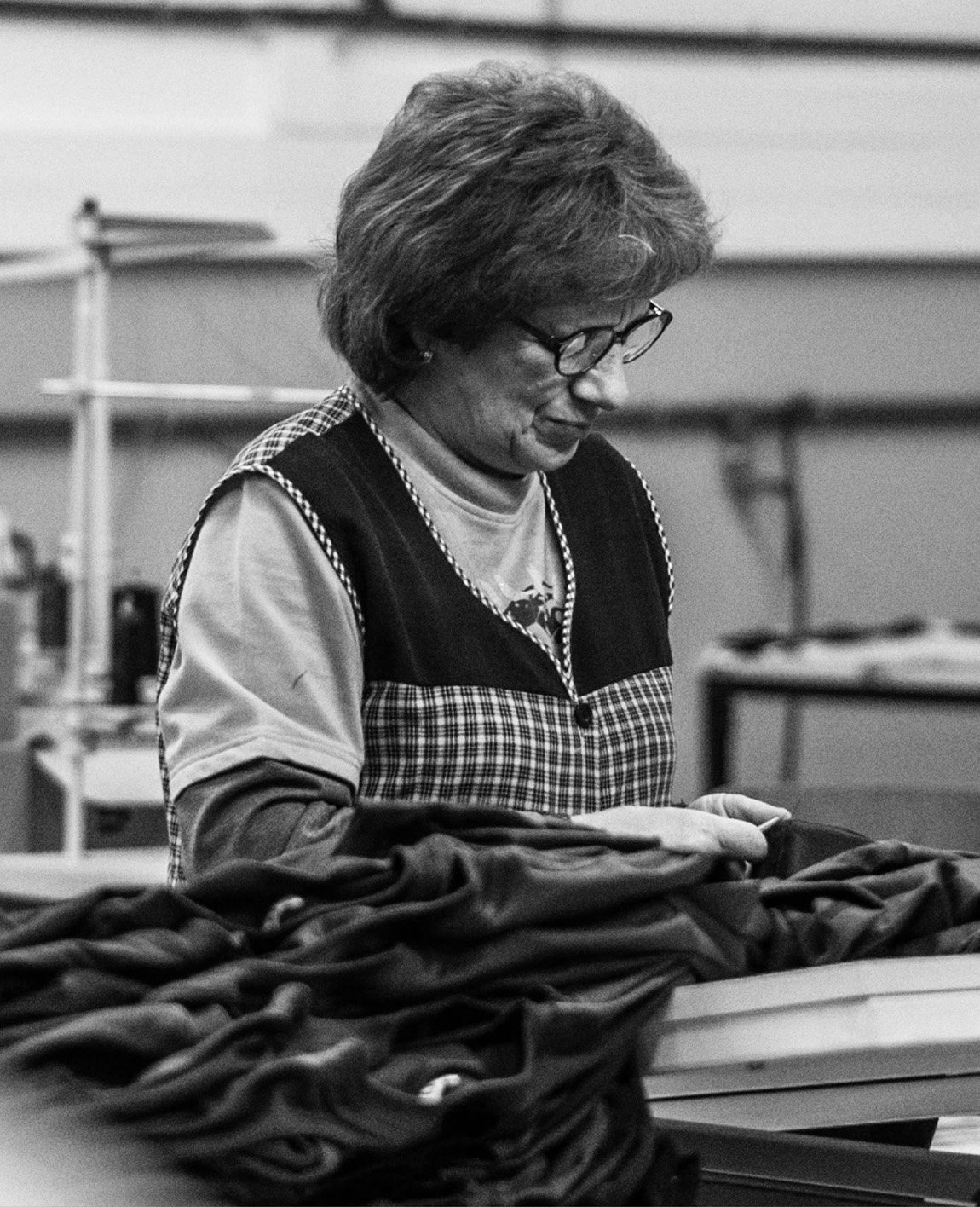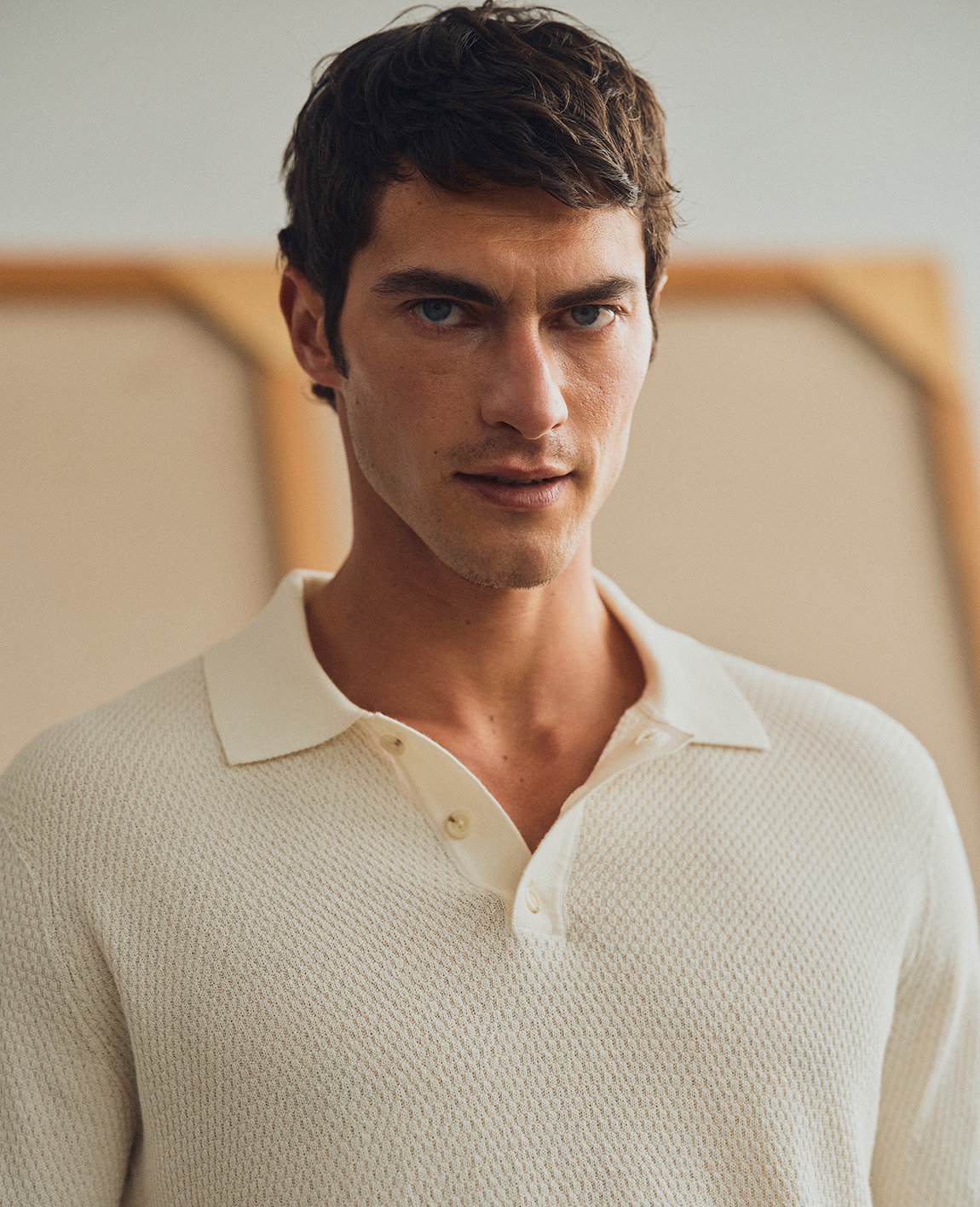Through a moving lens
An interview with Matthew Johnson
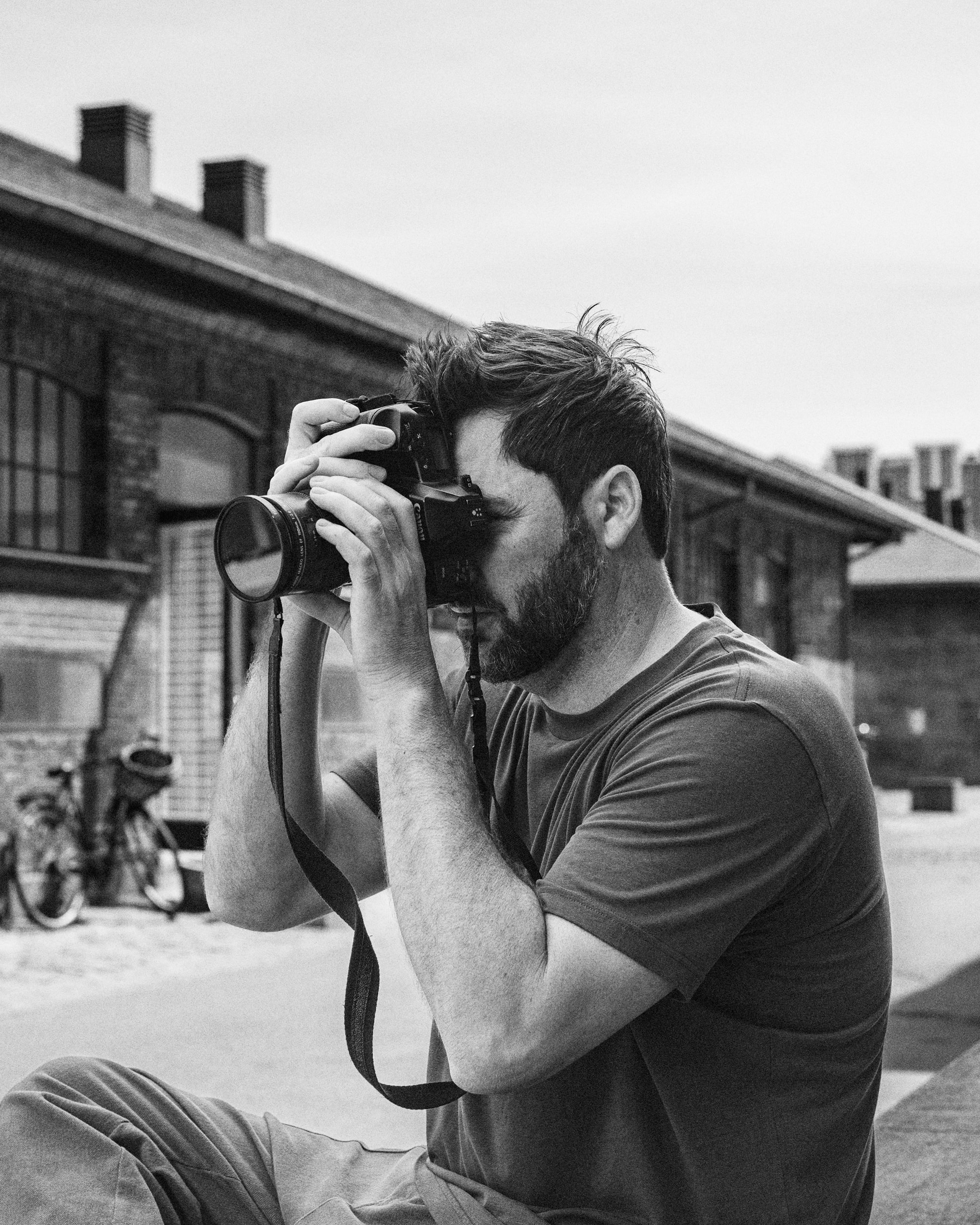
“I want my imagery to feel like a memory. Like when you've been to a city one time and you have all these fleeting memories of what it was, but you can't quite hold onto them.”
For the second edition of our artist collab series Canvas, we reached out to Matthew Johnson, a fine art and editorial photographer based in New York's Hudson Valley. Johnson is known for his strikingly abstract, motion-based analog photography, capturing fleeting moments that blur the line between memory and reality. His "Above Ground" series, which first emerged from experiments in New York's subway system, has evolved into a distinct artistic language - one that now extends to the streets and skyline of Copenhagen in this exclusive project.
The result? A limited-edition T-Shirt collection featuring two of Johnson's original photographic works, each printed in just 250 editions.
We sat down with Matthew to discuss his creative journey, inspirations, and the process of translating his abstract photographic vision onto fabric.
Could you introduce yourself?
My name is Matthew Johnson, and I'm a fine art and editorial photographer based in New York's Hudson Valley. My work is heavily rooted in analog photography, and I like to push the medium to create abstract imagery - sometimes to the point where it no longer resembles traditional photography. I find inspiration in movement, light, and texture, often resulting in work that has a painterly quality.
How did you first get into photography?
Before I was a photographer, I was a writer. I actually wrote a book at the end of college and had every intention of continuing down that path. I even did the “young thing”: bought an around-the-world ticket, planning to travel and write a great novel. But along the way, I had a camera with me… and I hardly wrote on the trip. And it's cliché, but I just sort of realized that a picture is worth a thousand words, and you can tell stories in a different way through photography. Since then, I've been exploring the medium's ability to capture fleeting moments and evoke emotions that go beyond a literal interpretation.
“...a picture is worth a thousand words, and you can tell stories in a different way through photography.”
Your work has a distinct approach to motion and abstraction. What draws you to this style?
My "Above Ground" series actually started by accident. I was taking photos in a dark subway in New York and exposing for that darkness. And then the subway came out of the darkness into the light, and I didn't change the exposure. The result was a long-exposure blur. But when I got the film back, I saw something interesting. It felt like a memory, like something you vaguely remember from a long time ago. So I started shooting that intentionally - traveling all the above-ground routes in New York and using these longer exposures to create that painterly imagery. Like a memory you can't quite hold onto.
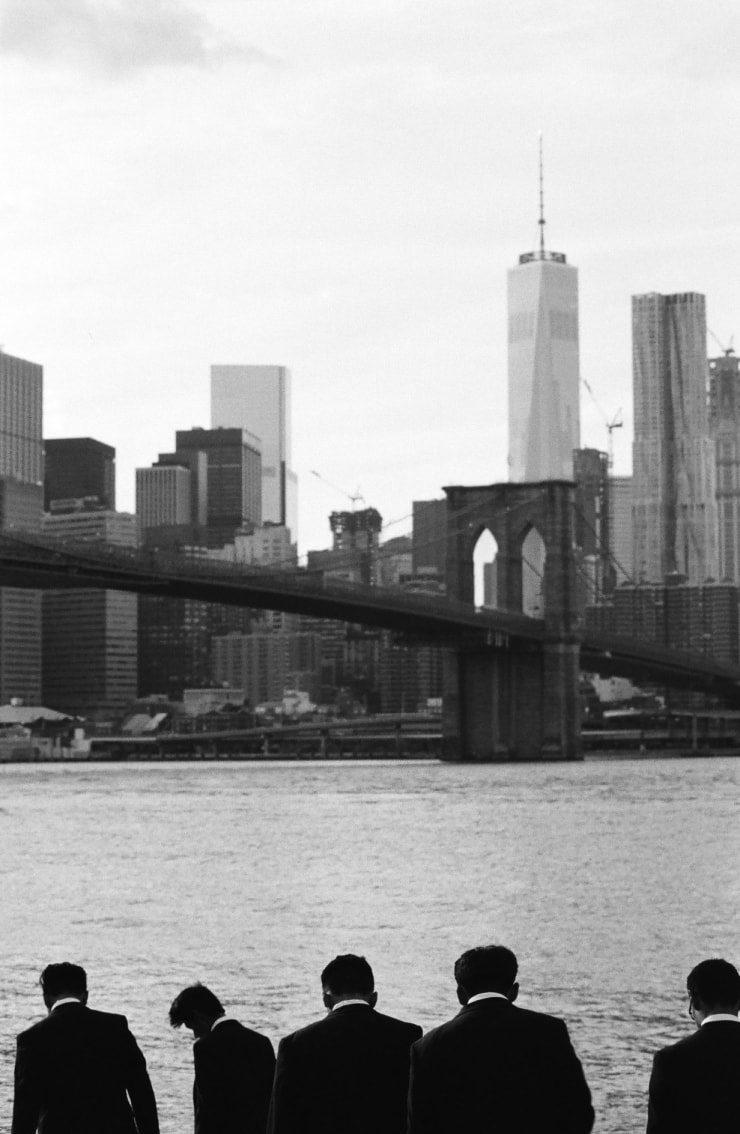
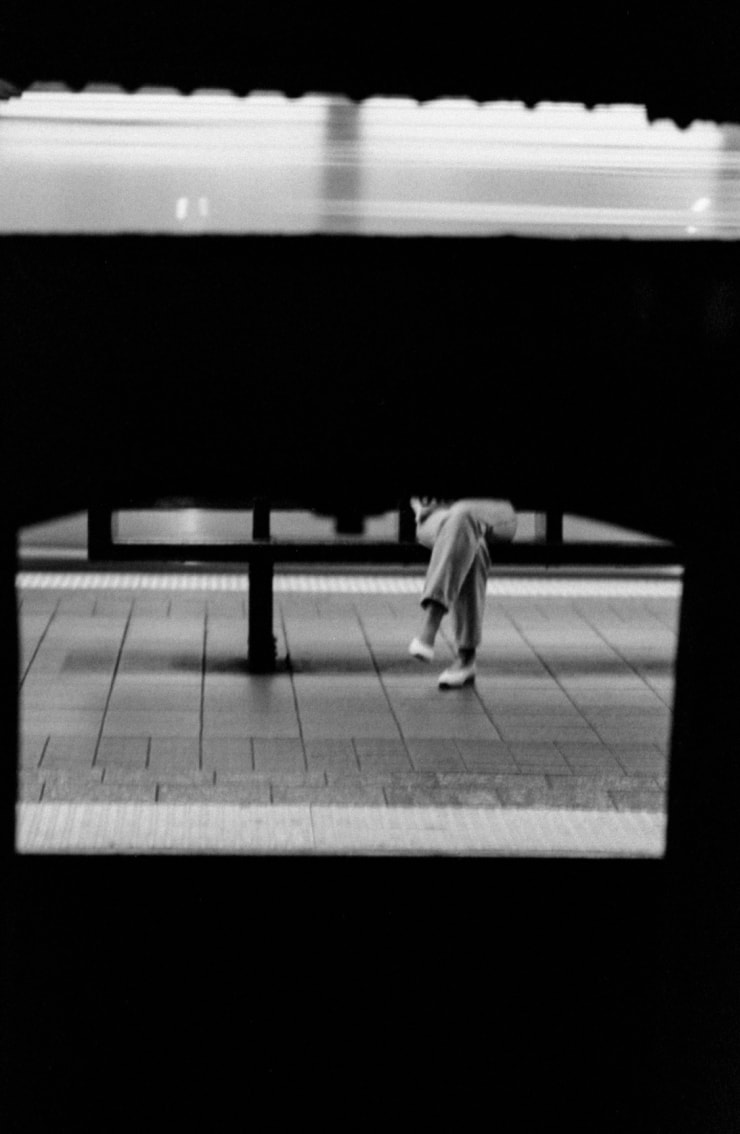
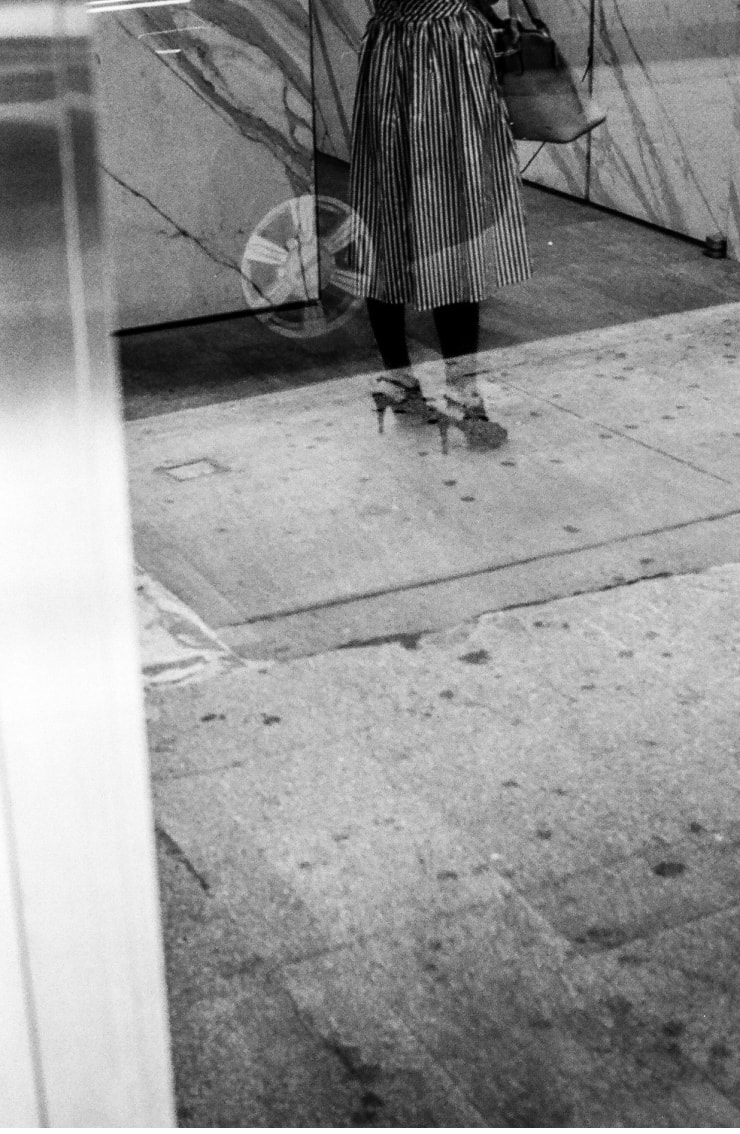
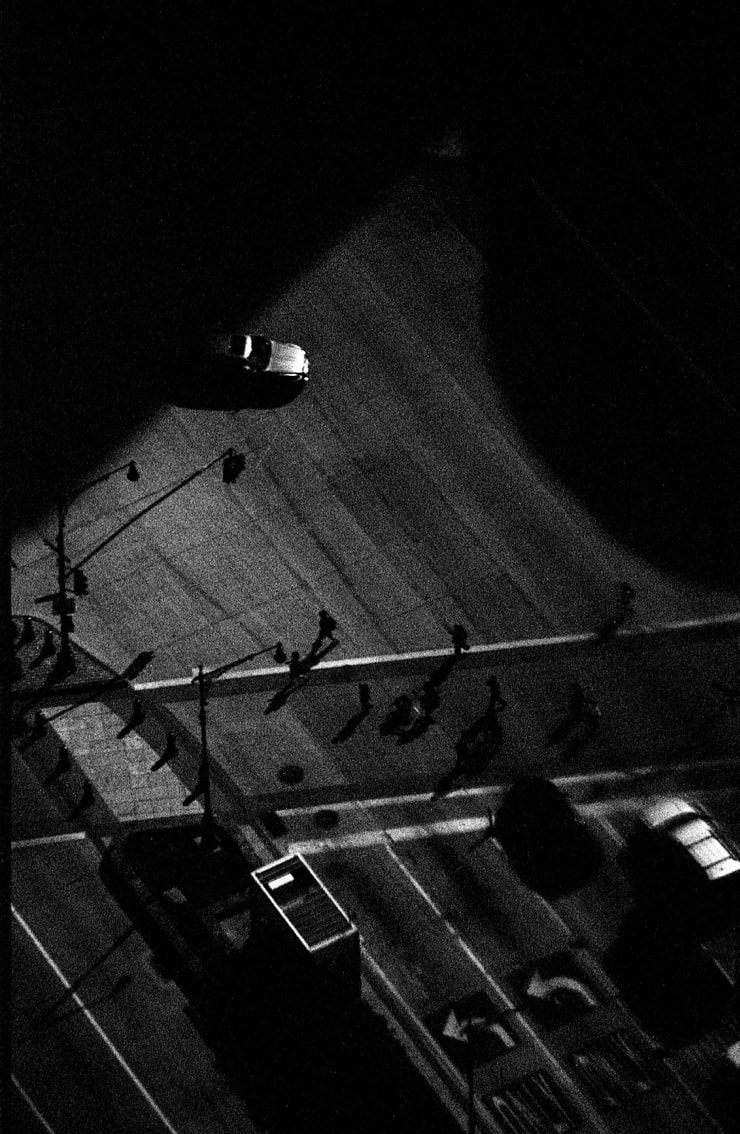
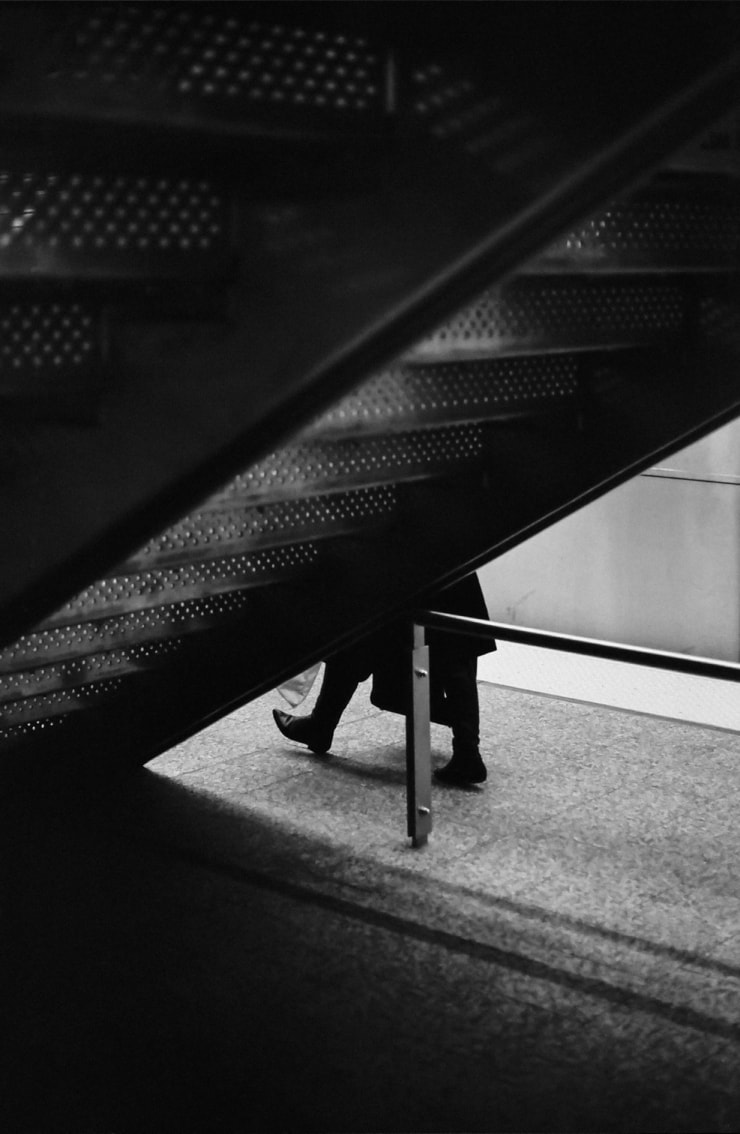
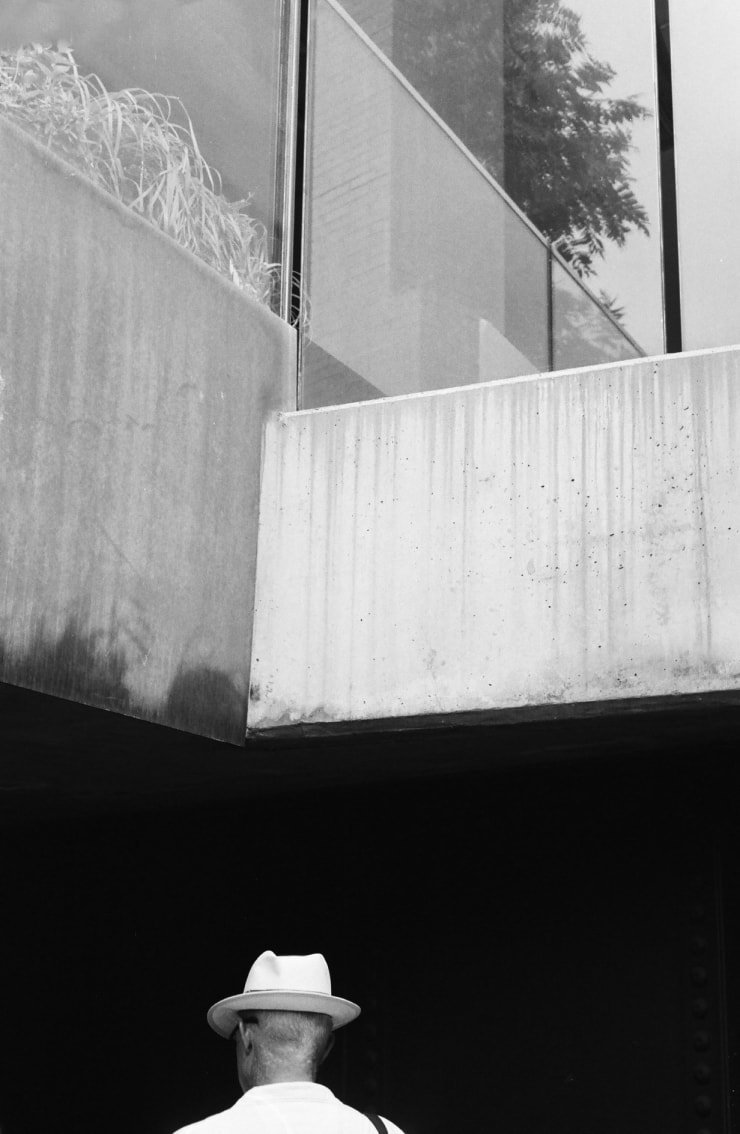
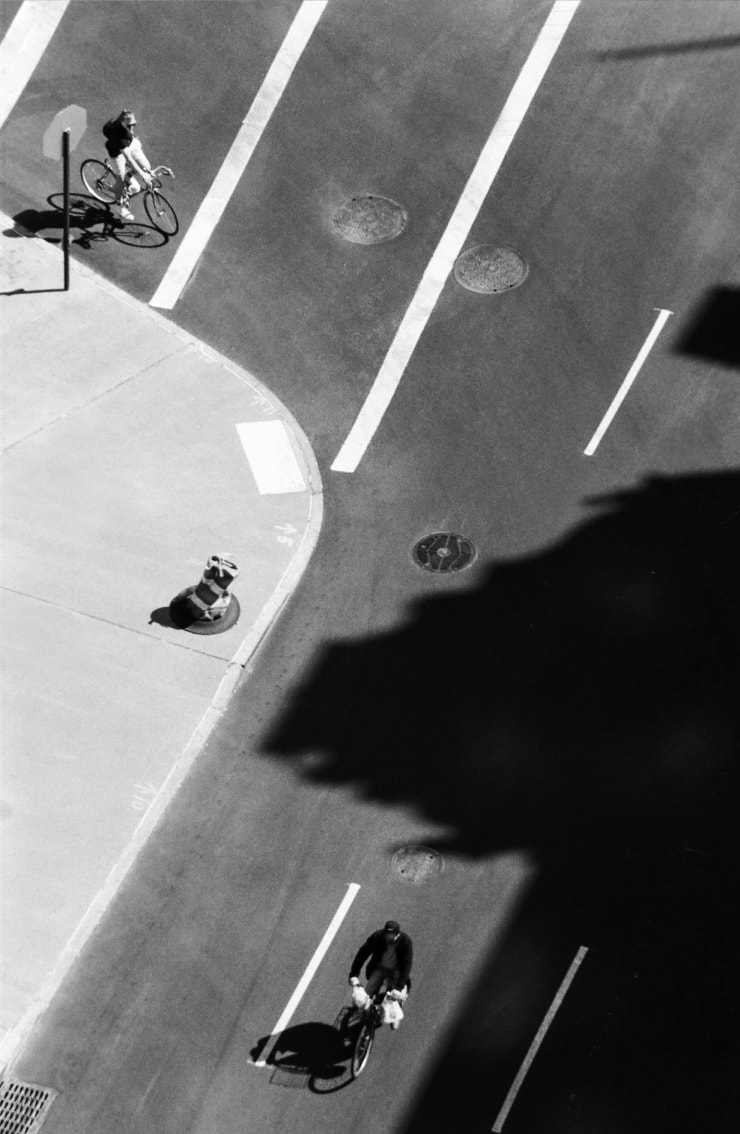
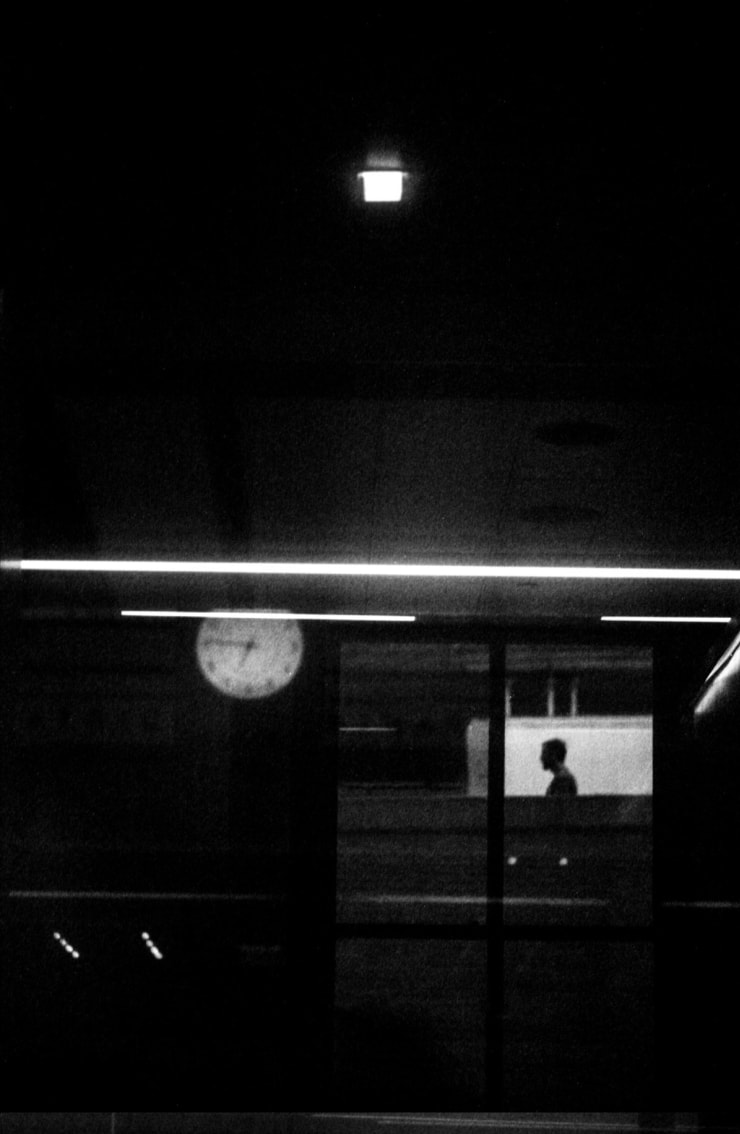
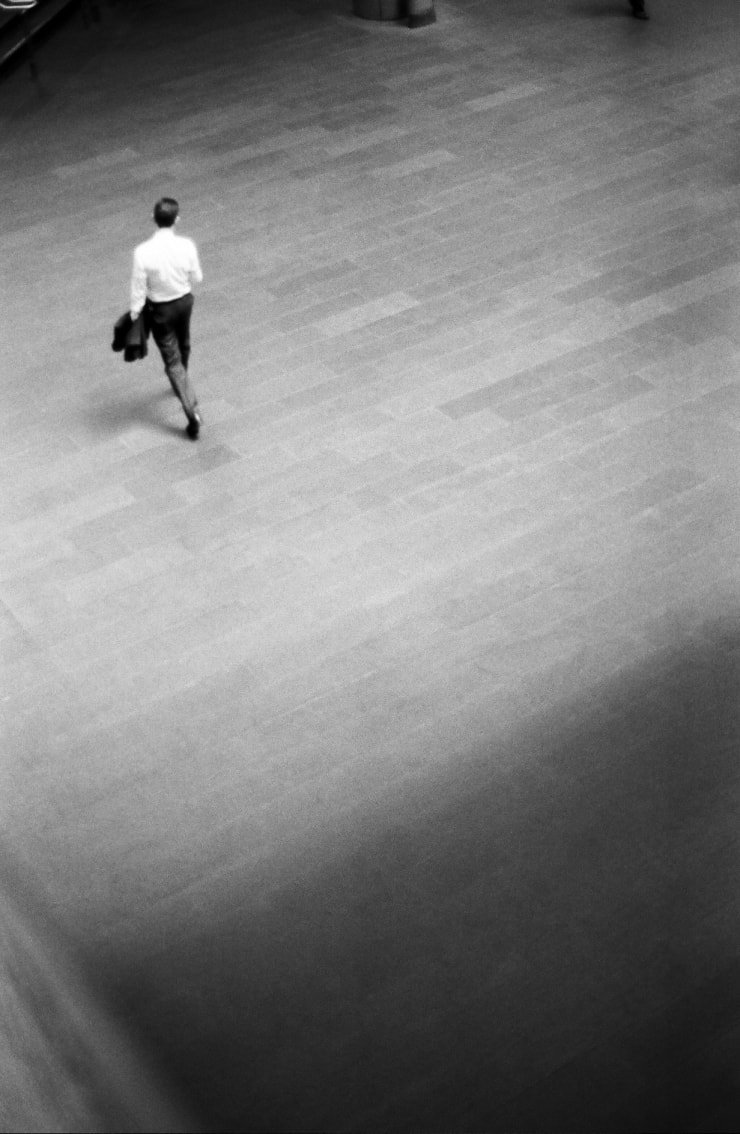
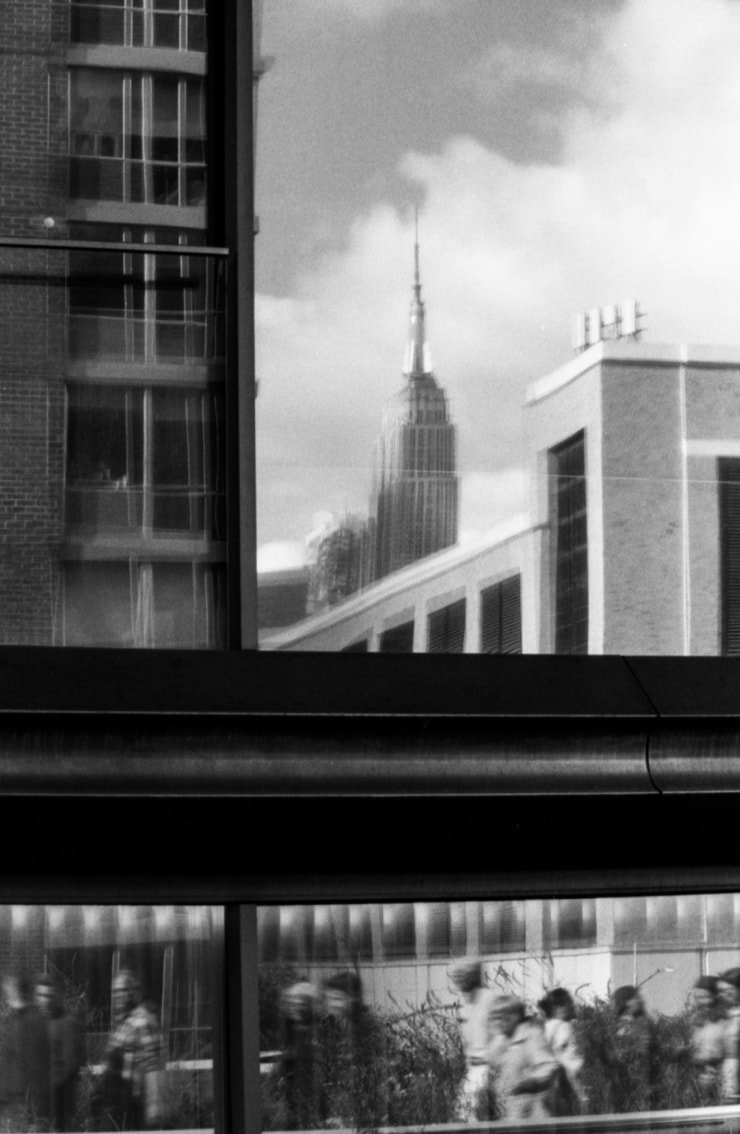
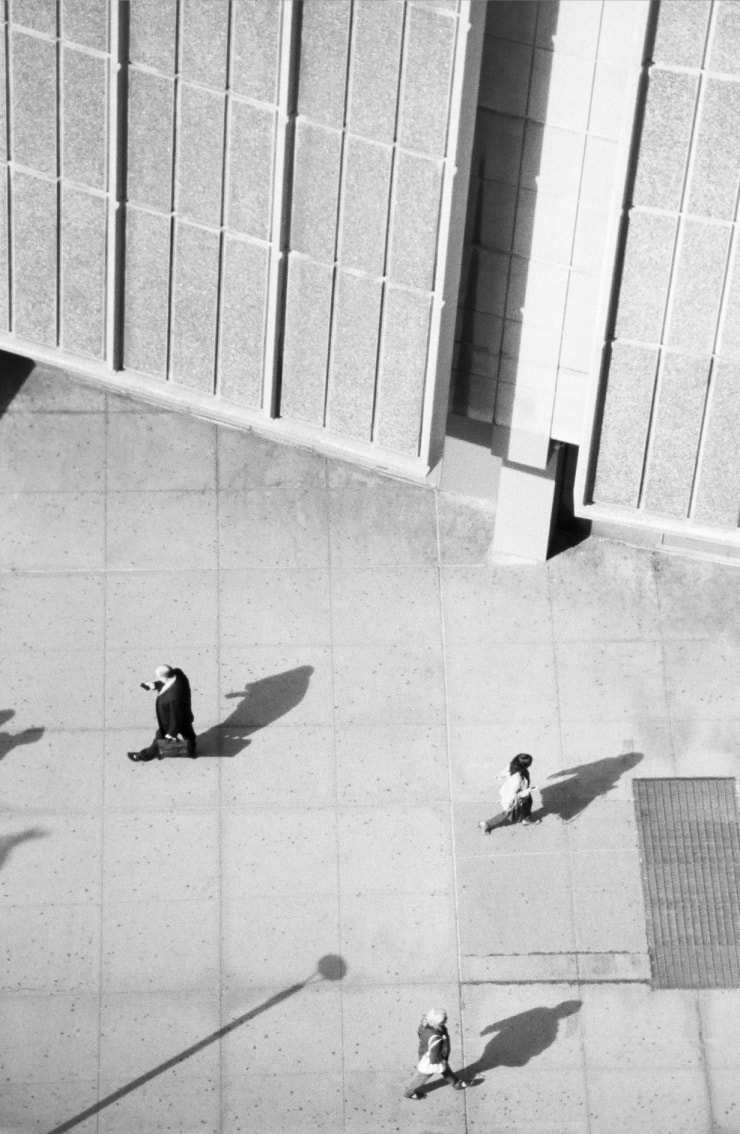
“NYC” series shot in New York City. See more at bymatthewjohnson.com.
Copenhagen is obviously very different from New York. How was it shooting the city in this style?
This was my first time in Copenhagen, and I was struck by the contrast between its historic cityscape and the sleek, modern architecture that has become part of its skyline. I wanted to capture that coexistence. Just like my work in New York, I wasn't looking for a literal representation of the city, but rather an abstract interpretation - something that allows the viewer to project their own memories and emotions onto the imagery.
Can you walk us through your creative process?
There's something about having to load the rolls into the camera, swapping them out, and waiting to see what comes out. You don't get that instant feedback like you do with digital photography. I think that gap between shooting and seeing the results is really valuable. When I scan my negatives, I'm often surprised by what I captured, and that keeps things fresh. Some images are exactly what I intended, but others have this unexpected quality that I love.
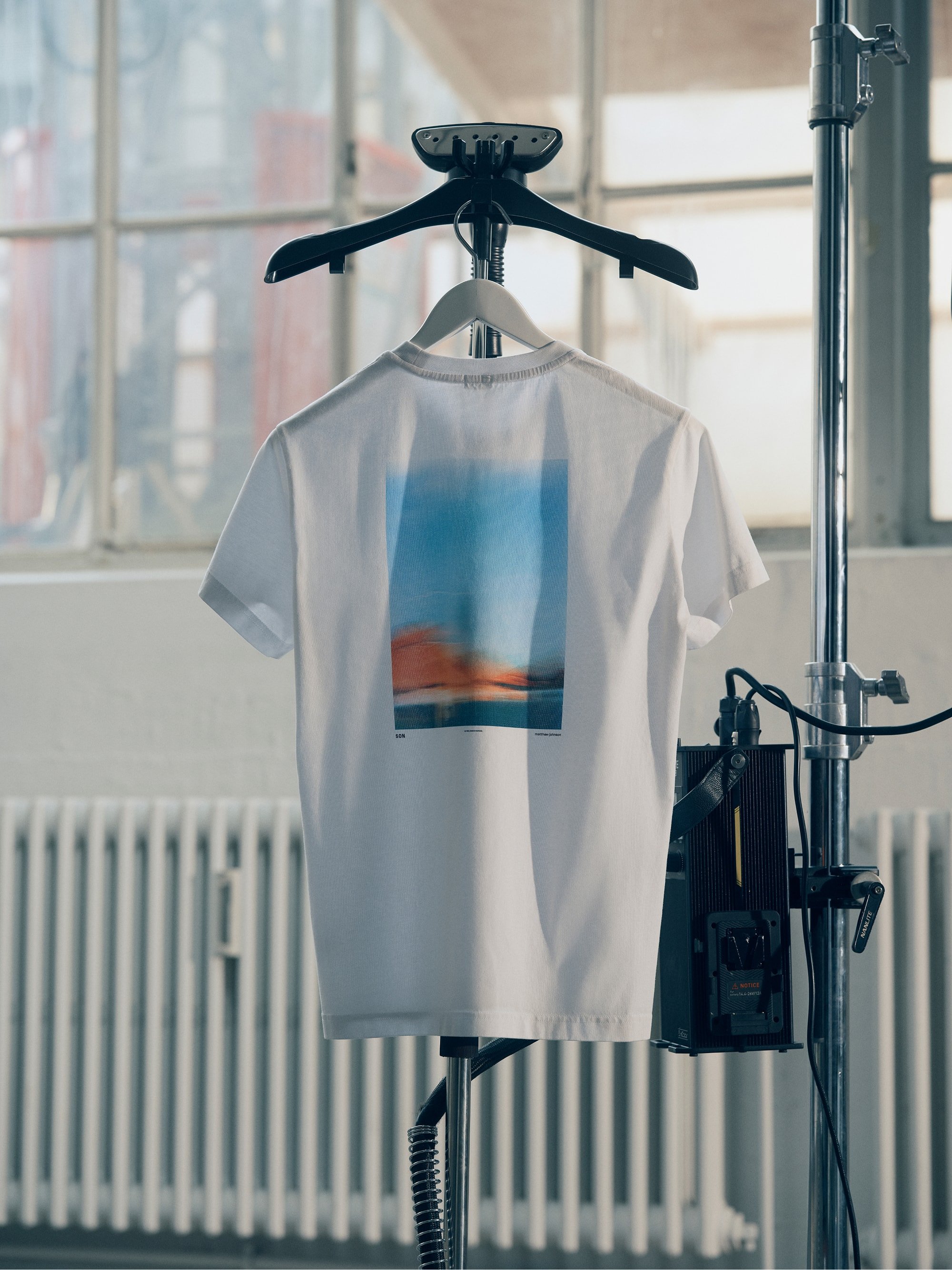
What was it like seeing your work translated onto clothing?
It was exciting. A lot of times when I collaborate with brands, they have a specific way they want the imagery to look or feel to fit a commercial goal. But with this, I was able to capture Copenhagen how I've learned to capture New York, and the final prints stayed true to that. It's really satisfying to see my work exist in its purest form on a medium like this.
What do you hope people feel when they see your work?
I want my imagery to feel like a memory. Like when you've been to a city one time and you have all these fleeting memories of what it was, but you can't quite hold onto them. Or like a commute you've taken a thousand times that has blurred together in your mind. I want people to look at my work and project their own experiences onto it. It doesn't have to be a literal place - it's about what it reminds them of. If my work can do that, then I think it's successful.
